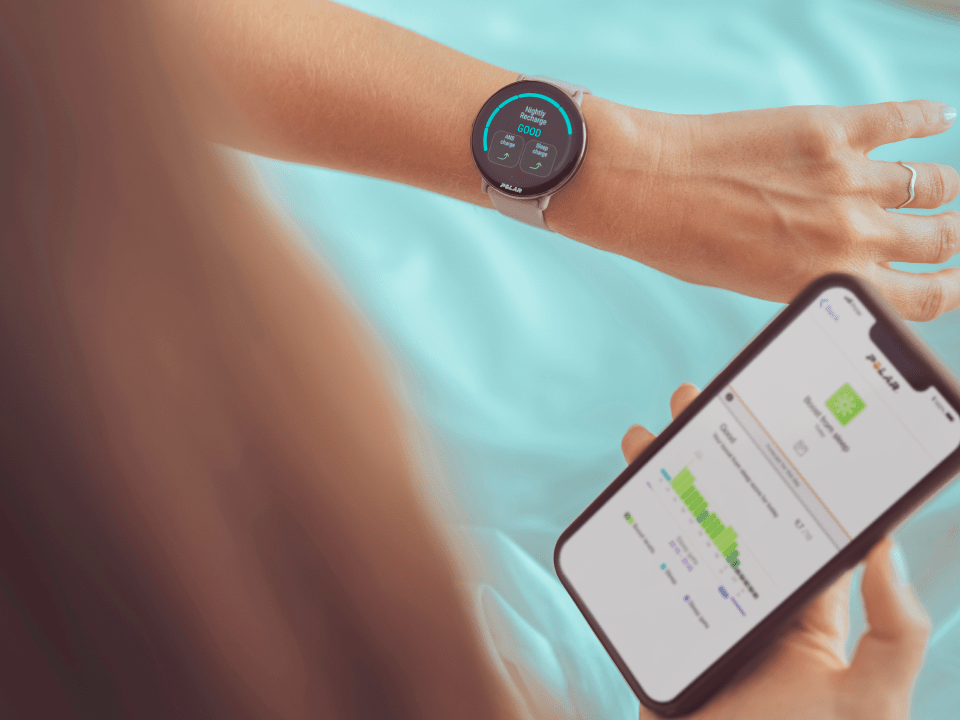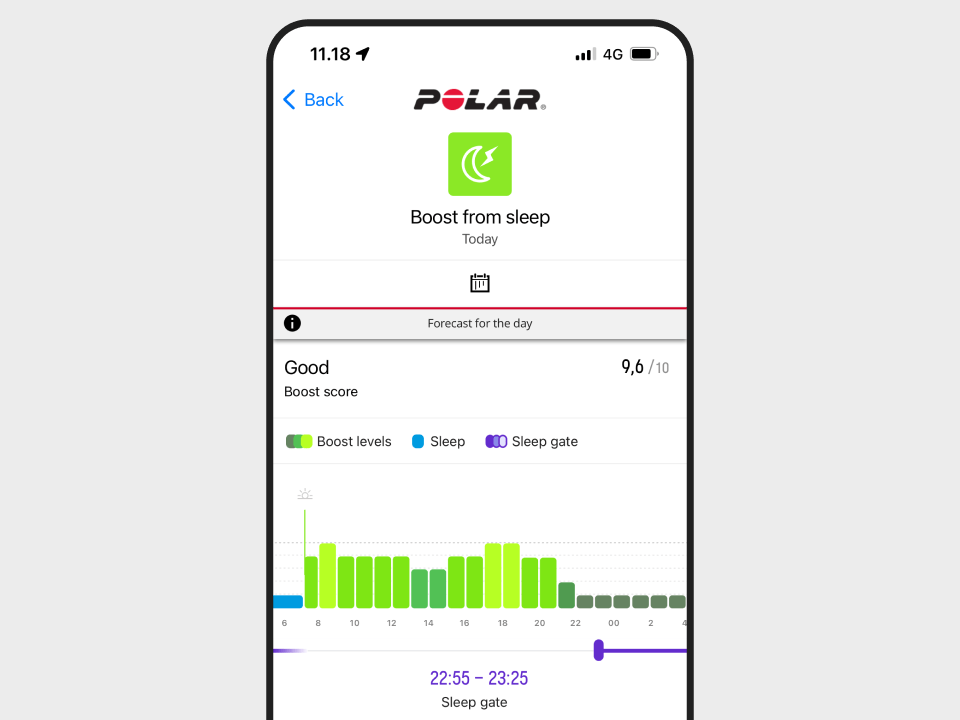This SleepWise guide to daytime alertness provides insights that help you create a schedule to face your daily challenges sharp and ready. Scroll down to read this article from the Polar Blog.

Sleeping is vital for our existence. We don’t have to explain you that. In the long term, sleep plays an important role in your overall health and wellbeing, helping manage stress, improve your immune system, and promote cardiac health. It restores your body and mind.
But sleep, also has a direct effect on your daytime alertness which, in turn, affects how well you perform when you are awake, both in life and in sports.
A good night’s sleep can improve your mood and boost your alertness – a key indicator of your preparedness for the day ahead. Short nights, poor-quality sleep, or irregular sleep-wake rhythm have negative effects on alertness.
When you get enough sleep and have a regular sleep-wake schedule, your alertness levels will be better. This means you’ll be ready to perceive, understand and act efficiently in a given situation. For example, driving, or work, or a tennis match. Your reaction time, judgment, decision-making, and situational awareness will be better – and all of which contribute to performance at work and in sports.
To help you better understand how sleep affects your days, we’re introducing an all-new sleep tracking feature that visualizes the effects of sleep on your alertness levels, and therefore, on how well you perform when you’re awake. We call it SleepWise™.

Every morning, SleepWise™ offers you daytime alertness insights that help you perfect a sleep schedule so you can face your daily challenges sharp and ready. By seeing a detailed outlook of your alertness levels, you’ll understand when it’s the optimal time for focused activities, winding-down, or a nap. The feature also suggests the time when your body is ready to fall asleep.
SleepWise™ doesn’t just track the amount and quality of your sleep. It also analyzes how well your sleep-wake rhythm aligns with your body’s internal circadian rhythm to determine your mental alertness for each hour of the day.
Sticking to a regular bedtime and wake-up time is great for your sleep. For example, staying up on the weekends or sleeping in can derail sleep and subsequently, impact negatively your alertness levels. With simple numeric feedback, SleepWise™ visualizes the effects of sleep debt and irregular sleep-wake rhythm, helping you make small adjustments to find your ideal sleeping schedule. It also anticipates a time when the user’s body will be ready to fall asleep.
When your sleep and internal circadian rhythms are in harmony, you’ll be more focused, think clearly, and perform better in sports and in life.
HOW SLEEPWISE™ WORKS

SleepWise™ takes sleep tracking further. It factors in your sleep amount, quality, timing, and your body’s internal rhythm to predict how sleep boosts your alertness levels and readiness for each hour after waking up.
To gather these insights, you only need to wear your Polar watch at night. After the first five nights, you’ll find your daytime alertness insights in the Polar Flow app. Just select the “Boost from Sleep” icon in the lower part of the screen. You’ll find some extra information on our Support section.
SleepWise™ is currently available for Polar Ignite 3, Polar Grit X Pro, Polar Vantage V2, Polar Pacer Pro, and Polar Pacer. SleepWise™ will be coming to other watches that support Sleep Plus Stages™ early next year.
The SleepWise™ algorithm uses a biomathematical model to assess how recent sleep, time awake, and the body’s internal circadian rhythm impact on your day’s alertness levels.
To predict how sleep boosts your alertness during waking hours, the algorithm evaluates sleep amount, quality, and timing against personal sleep need and internal circadian rhythm.
Biomathematical modeling is a generally accepted method to predict the effects of recent sleep loss on sleepiness and performance during waking hours.
THE SCIENCE BEHIND SLEEPWISE

Like other Polar Smart Coaching features, SleepWise™ is built on a solid foundation. If you want to explore the science behind SleepWise™, we’ve published a white paper that describes in detail the feature. The paper reviews physiological sleep regulatory processes, sleep debt, sleep-wake rhythm, and their connections to daytime alertness. It also presents the biomathematical modeling for alertness as well as the technology, algorithm, and details all the functionalities of SleepWise™.



